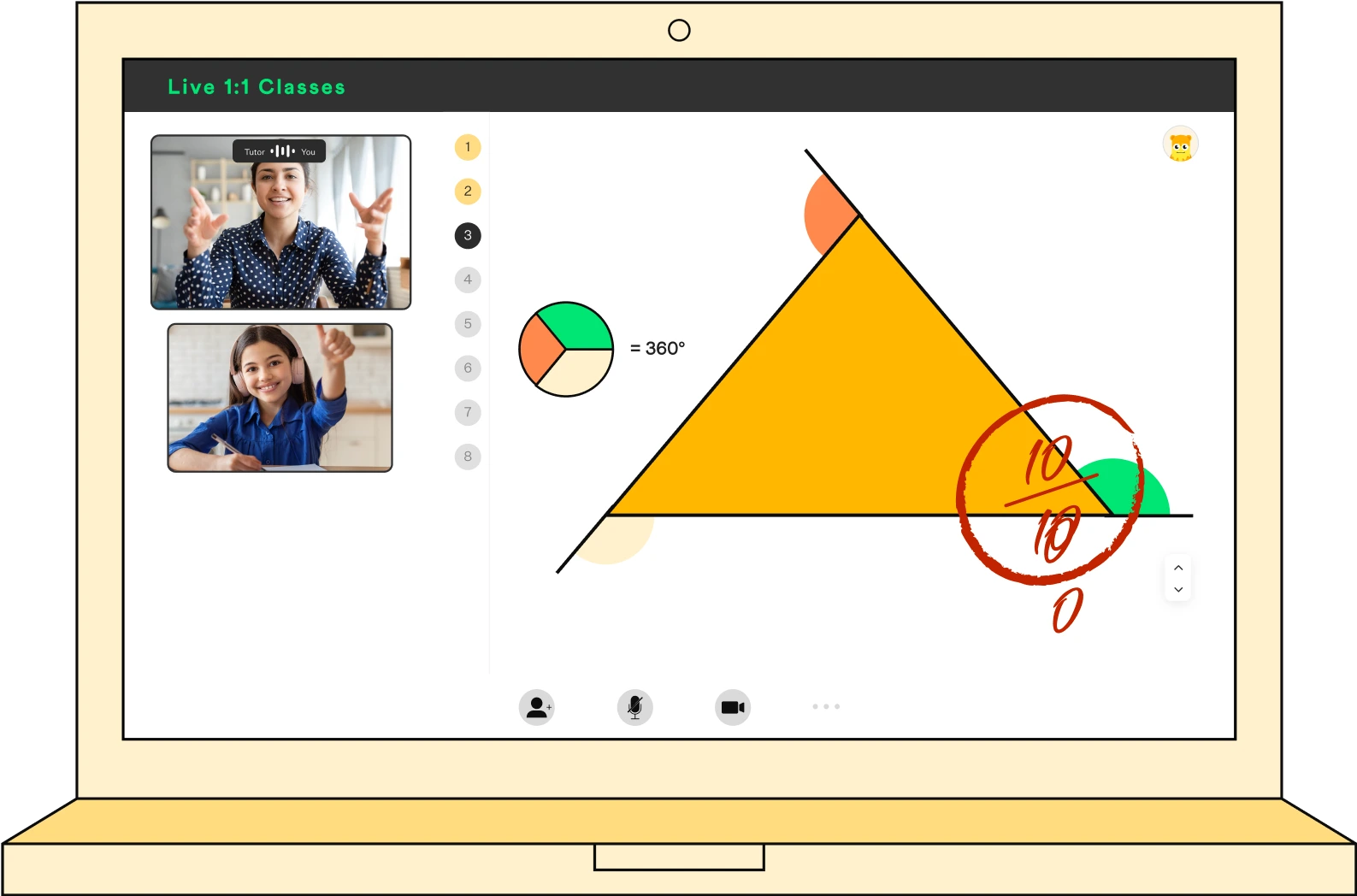Ace 1st Grade Math with 1:1 Live Tutoring





Ace 1st Grade Math with Cuemath’s Interactive 1:1 Math Classes
Our online math classes are flexible. The classes are conducted twice a week, and can be easily rescheduled in case of emergencies, allowing children to learn and progress gradually.
What will your Child Learn in Grade 1 Classes?
Each 1st grade math topic is taught by our top 1% Indian tutors who guide students using fun, real-world examples and interactive activities. This approach makes learning enjoyable and helps simplify complex concepts.
Master 1st Grade Math with Targeted Worksheets and Assessments
Our worksheets complement our flexible online classes. It lets students practice concepts at their own pace. In case of doubts, your child's dedicated tutor provides personalized guidance during the next session. We make sure your child understands each 1st grade math concept completely before moving forward.
Join Trusted Parents: Transform Your Child Learning’s Experience
- Counting up to 120
- Place Value
- Skip Counting
- Comparing Lengths
- Measuring Lengths
- Volume
- Standard Units (Inches & cm)
- Telling Time on Analog and Digital Clocks
- Money Units
- Addition of 2-digit Numbers
- Subtraction of 2-digit Numbers
- Missing Number Problems
- 2D Shapes (Squares, Circles, Triangles)
- 3D Shapes (Cubes, Spheres)
- Interpret Data
- Picture Graphs
- Bar Graphs
What is the basic math for grade 1?
Basic math in Grade 1 includes counting, reading, and writing numbers up to 120, simple addition and subtraction within 20, understanding place value, comparing numbers, and solving word problems. Students are also introduced to concepts of time, money, measurement, shapes, and data interpretation using simple graphs.
What should a 1st grader know in math?
By the end of Grade 1, students should be able to count to 120, perform basic addition and subtraction, understand place value, use number lines, identify and compare shapes, tell time to the hour and half-hour, and work with simple data and measurements using real-life examples.
How to teach Common Core math in 1st grade?
Teaching Common Core math in Grade 1 focuses on conceptual understanding and problem-solving. Use hands-on tools like number lines, ten-frames, and visual models. Encourage multiple strategies for solving problems and ask students to explain their thinking. Real-world examples and consistent practice help build a strong foundation.
What are doubles in 1st grade math?
Doubles are additional facts where the same number is added to itself, such as 2 + 2 or 5 + 5. These help children recognize number patterns and develop mental math strategies. Learning doubles supports fluency in addition and lays the groundwork for understanding multiplication later on.
What is the frequency and duration of Cuemath 1st grade math classes?
We conduct two 1st grade classes per week. Each lesson is for 55 - 60 minutes. The classes can be easily rescheduled in case of emergencies, travel plans or commitments.
What do you learn in 1st grade math?
In grade 1, your child will learn the basics of many concepts that are taught in depth in the coming grades. For example, numbers and place value, addition and subtraction, measurement, time, money, shapes and patterns, data handling.
Does Cuemath offer 1st grade math worksheets?
Yes, we have unlimited 1st grade math worksheets after every lesson. Students can solve these worksheets and assessments during their free time or request tutors for a dedicated session on problem-solving. They can get in touch with their tutors to discuss the problems.
What is a fact family in math 1st grade?
A ‘fact family’ comprises two addition and two subtraction sums that use the same three numbers. For example, 4 + 8 = 12, 8 + 4 = 12, 12 - 8 = 4, 12 - 4 = 8. All of these 4 combinations use these numbers - 4, 8 and 12.
How to teach common core math in 1st grade?
1st grade common core math emphasizes learning through real-life examples and figures. It is quite easy to use daily-life examples to teach common core 1st grade math. Use blocks to help your child with word problems. Show them how to add and subtract by taking apart and putting together items. Then, write the equations on paper. For example, if you have 20 blocks and take away 6, write 20 – 6 = 14.
What are sight words for 1st grade and how many sight words should they know?
Sight words are very short, simple, and easy-to-pronounce words in English, like ‘a’, ‘my’, ‘such’, ‘little’, etc. Sight words are taught in 1st grade to build on basic vocabulary and English comprehension skills. By the end of 1st grade, students should be able to pronounce and know at least 100 sight words.